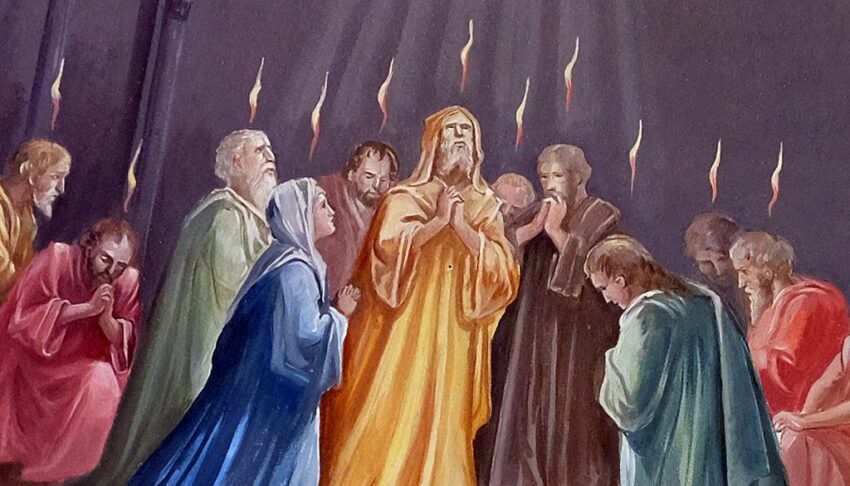Pentecost, also known as Whitsunday, will be celebrated on May 28 this year. The word has its roots in the Greek word ‘pentecoste,’ which means ’50th day.’ Pentecost is a major festival in the Christian church and is celebrated by believers on the Sunday that falls on the 50th day of Easter.
What are the seven gifts of the Holy Spirit?
The seven gifts of the Holy Spirit are, according to Catholic Tradition, wisdom, understanding, counsel, fortitude, knowledge, piety, and fear of God. The standard interpretation has been the one that St. Thomas Aquinas worked out in the thirteenth century in his Summa Theologiae:
- Wisdom is both the knowledge of and judgment about “divine things” and the ability to judge and direct human affairs according to divine truth (I/I.1.6; I/II.69.3; II/II.8.6; II/II.45.1–5).
- Understanding is penetrating insight into the very heart of things, especially those higher truths that are necessary for our eternal salvation—in effect, the ability to “see” God (I/I.12.5; I/II.69.2; II/II.8.1–3).
- Counsel allows a man to be directed by God in matters necessary for his salvation (II/II.52.1).
- Fortitude denotes a firmness of mind in doing good and in avoiding evil, particularly when it is difficult or dangerous to do so, and the confidence to overcome all obstacles, even deadly ones, by virtue of the assurance of everlasting life (I/II.61.3; II/II.123.2; II/II.139.1).
- Knowledge is the ability to judge correctly about matters of faith and right action, so as to never wander from the straight path of justice (II/II.9.3).
- Piety is, principally, revering God with filial affection, paying worship and duty to God, paying due duty to all men on account of their relationship to God, and honoring the saints and not contradicting Scripture. The Latin word pietas denotes the reverence that we give to our father and to our country; since God is the Father of all, the worship of God is also called piety (I/II.68.4; II/II.121.1).
- Fear of God is, in this context, “filial” or chaste fear whereby we revere God and avoid separating ourselves from him—as opposed to “servile” fear, whereby we fear punishment (I/II.67.4; II/II.19.9).
These are heroic character traits that Jesus Christ alone possesses in their plenitude but that he freely shares with the members of his mystical body (i.e., his Church). These traits are infused into every Christian as a permanent endowment at his baptism, nurtured by the practice of the seven virtues, and sealed in the sacrament of confirmation. They are also known as the sanctifying gifts of the Spirit, because they serve the purpose of rendering their recipients docile to the promptings of the Holy Spirit in their lives, helping them to grow in holiness and making them fit for heaven.
These gifts, according to Aquinas, are “habits,” “instincts,” or “dispositions” provided by God as supernatural helps to man in the process of his “perfection.” They enable man to transcend the limitations of human reason and human nature and participate in the very life of God, as Christ promised (John 14:23). Aquinas insisted that they are necessary for man’s salvation, which he cannot achieve on his own. They serve to “perfect” the four cardinal or moral virtues (prudence, justice, fortitude, and temperance) and the three theological virtues (faith, hope, and charity). The virtue of charity is the key that unlocks the potential power of the seven gifts, which can (and will) lie dormant in the soul after baptism unless so acted upon.
